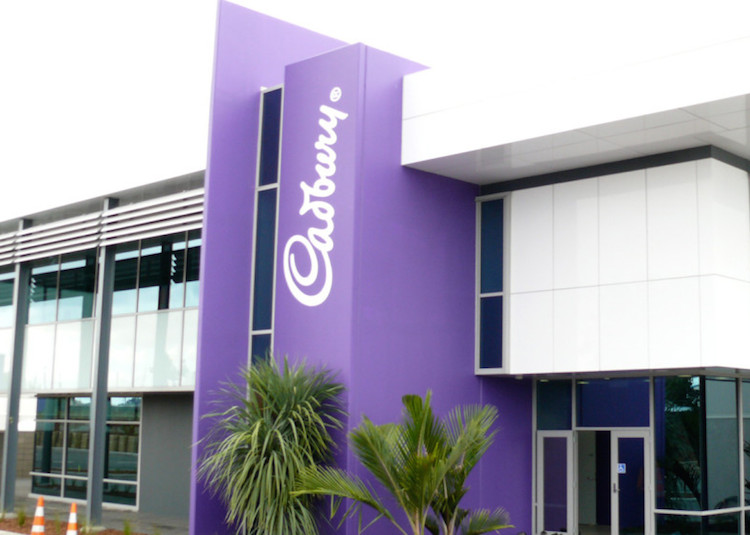Brand News
Cadbury Nigeria’s Margins Deteriorate Amid Rising Cost Pressure

Cadbury Nigeria Plc (‘the Company’ or ’Cadbury’), recorded a 4% YoY uptick in revenue from N8.92bn in Q1 2021 from N8.55bn in Q1 2020 on account of higher domestic sales.
However, owing to the higher cost of sales (+19% to N7.42bn in Q1 2021 from N6.26bn in Q1 2020) attributed to the impact of FX challenges, gross profit dipped by 35% YoY to N1.49bn in Q1 2021 from N2.37bn in Q1 2020.
Operating profit significantly dropped by 63% YoY to N323mn in Q1 2021 from N882mn in Q1 2020 despite a 21% YoY decline in operating expenses. Cadbury’s profitability was negatively affected by a higher cost margin, which resulted to a 62% fall in profit before tax to N345mn in Q1 2021 from N913mn in Q1 2020. Similarly, profit after tax fell by 62%
to N242mn in Q1 2021 from N639mn in Q1 2020.
The breakdown of revenue according to geography showed that domestic sales rose 16% to N8.55bn in Q1 2021 from N7.34bn in Q1 2020. Conversely, export sales fell to N375mn in Q1 2021 from N1.21bn in Q1 2020. Given that Cadbury exports to countries mainly in Africa and Europe, we attribute the weak export sales to the restrictions imposed due to the resurgence of new variants of the COVID-19 virus,
especially in Europe.
The further breakdown according to segments revealed a 26% YoY growth in Refreshment Beverage to N5.68bn in Q1 2021 from N4.49bn in Q1 2020 while Confectionary grew by 4% to N2.94bn in Q1 2021 from N2.83bn in Q1 2020. However, intermediate products dipped markedly by 75% to N306mn in Q1 2021 from N1.24bn in Q1 2020. Overall, the sharp decline in intermediate products and the weak export sales partially contributed to weak growth in total revenue in Q1 2021.
Cadbury’s gross margin contracted in Q1 2021 to 17% from 27% owing to an increase in cost of sales.
In Q1 2021, cost of sales rose to N7.43bn from N6.26bn in Q1 2020. The rise in cost of sales translated to a higher cost margin of 83% in Q1 2021 from 73% in Q1 2020. In our view, the higher cost margin could be attributed to higher input costs induced by the difficulty in sourcing for FX to import raw materials. Given the high level of competition in the industry and macroeconomic challenges as it relates to households’ income and purchasing power, we posit that the ability of the Company to raise
price was limited.
Operating expense declined by 21% YoY to N1.17bn in Q1 2021 from N1.48bn in Q1 2020. Specifically, a 22% YoY decline in selling and distribution expense to N893mn in Q1 2021 from N1.14bn in Q1 2020, combined with a 19% YoY decline in administrative expense to N274mn in Q1 2021 from N340mn in Q1 2020 led to the overall decline in operating expense. However, due to weak revenue sales, the reduced operating expense had a relatively insignificant impact, as operating profit plunged markedly.
In its exports market, we expect to see a recovery in some of its key export market, on the back of the flattening of the Covid curve.
We revised our FY 2021 revenue projection to N38.64bn (previous: N41.73bn). However, we forecasted a higher net income of N 1.11bn for FY 2021 (previous: N678mn). Our higher net income adjustment stemmed from our expectations of sustained cost optimization and overall operating efficiency.
Our revised fair value estimate for the Company is N5.61 (previous: N5.72). The relatively unchanged fair value, despite our higher earnings forecast was due to a lower justified P/E for the stock. In arriving at our fair value estimate, we used a blend for Discounted Cash Flow (DCF), Discounted Dividend Model (DDM), Residual Income Model (RIM), and Enterprise Value (EV/EBITDA) methodologies.
We used a higher discount rate – induced by the rising trend of benchmark rates in the fixed income market to discount our projected earnings and cash flows. At the stock’s current market price, we believe that the stock is trading above its fair value by 26%. Hence, we recommend a SELL.













